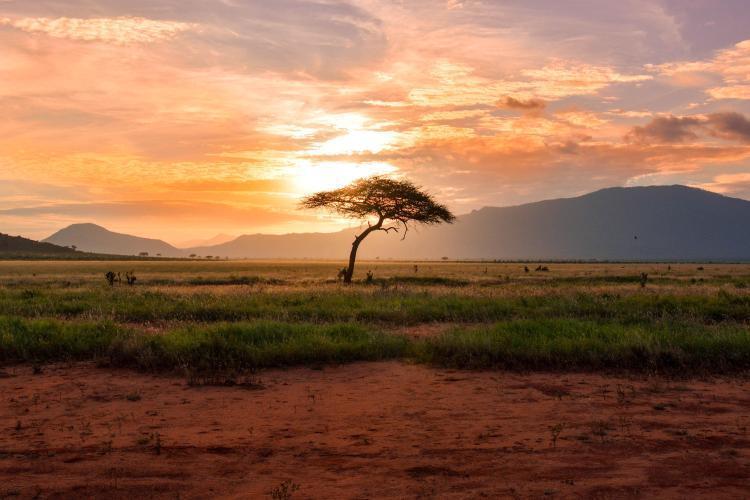
GEF earmarks $204.3 m to help UNDP scale up efforts for climate resilient future
The Global Environment Facility (GEF) has just approved $204.3 million for the United Nations Development ...

The European Investment Bank is expected to increase Africa financing to €4 billion in 2020 in order to support climate related investment and give momentum to the Sustainable Development Goals (SDGs).
Looking ahead, the EIB expects to significantly increase engagement in both sub-Saharan and North Africa.
This will include increased support for infrastructure that drives private sector growth, enabling job creation by entrepreneurs, start-up companies and corporates, and new financing for climate related investment and sustainable development.
“Africa is a key priority for the European Union and the European Investment Bank. The European Investment Bank is committed to working with African partners to accelerate and expand new investment that delivers sustainable development, tackles the climate emergency, creates jobs and improves lives across Africa.”
“The €3 billion of new investment in Africa supported by the EU bank in 2019 builds on 57 years of engagement across 52 African countries.”
“In recent months, the EIB has launched pioneering new initiatives to accelerate new investment essential to enabling women to fully participate in economic activity under the pioneering SheInvest program, to ensure African innovation companies can expand and to combine our financial understanding with philanthropy to tackle malaria,” said Werner Hoyer, European Investment Bank President.
The EU bank’s engagement in Africa will enhance economic opportunities, accelerate sustainable development, ensure access to finance, communications, clean water and clean energy for millions of people across the continent, and be reinforced with European Union engagement and policy priorities.
“The impact of EIB engagement in Africa is enhanced by our unique global technical, sector and financial experience, the expertise of EIB teams in our nine African offices and close cooperation with local project partners,” added President Hoyer.
The European Investment Bank, the European Union’s long-term lending institution, directly supported 58 new investment projects located in 22 African countries and, in cooperation with both African and international financial partners, backed projects in many other countries across the continent through regional financing programs.
“The EU bank is continually increasing the impact of investment that supports sustainable development and addressing climate change in Africa,” said Ambroise Fayolle, European Investment Bank Vice-President responsible for development.
“New support confirmed last year is providing thousands of schools and health centers with reliable electricity for the first time, ensuring that African farmers in the Sahel, eastern and southern Africa can access finance, providing clean water for millions of people in the Sahel and Southern Africa, and upgrading sustainable transport in Africa’s largest city and the island state of São Tomé and Príncipe.”
“The EIB also agreed new cooperation with experienced African financial institutions that is delivering hundreds of small-scale clean energy, digital, education, health and micro-finance schemes across the continent. By sharing technical, business and banking expertise through training programs, the EIB is making it possible to strengthen the skills of thousands of African entrepreneurs and financial professionals,” he added.
In recent years, the EIB has provided more than €2 billion of new financing to support high-impact investment in fragile states and least developed countries across Africa.
Last year, the EIB agreed new support to provide first-time telecommunications coverage to remote rural regions in West Africa and ensure that rural regions in the Sahel can access micro-finance.
The EIB also agreed to support new projects to develop off-grid solar in Mozambique and Malawi, better protect coastal roads in the island state of Sao Tome and secure the supply of clean water for 2.2 million people in the Madagascan capital following recent typhoons.
The EIB also agreed to help to pave the Mano River Union Road that will reduce seasonal closures after heavy rain, enable hundreds of thousands of people living in local communities to access markets and healthcare, and strengthen trade links between northern Liberia, Guinea and Côte d’Ivoire.
The EIB ensures that technical, environmental, social and financial expertise and sector understanding is shared with project promoters, financial partners and the private sector.
In 2019, the EIB successfully completed training programs for more than 4 000 African financial professionals in best-banking, climate risk and sustainable finance skills that will contribute to improving the local financial market and the contribution of African banks to long-term development.
The EIB also provided dedicated business skills training for thousands of entrepreneurs, members of business associations and micro-finance cooperatives.
In Uganda, the largest refugee host country in Africa, the EIB and UNHCR provided a two-week training program across the country to improve financial inclusion and financial literacy for both refugees and host communities. The Ugandan program will to help entrepreneurs to expand business activity, reduce unemployment in rural communities and improve access to loans by both refugees and host communities.
The Global Environment Facility (GEF) has just approved $204.3 million for the United Nations Development ...
The European Bank for Reconstruction and Development (EBRD) is promoting renewable energy and low‑carbon technologies ...
Vodafone Foundation has pledged €30,000 to Save the Children in response to the devastation caused ...


اترك تعليقا